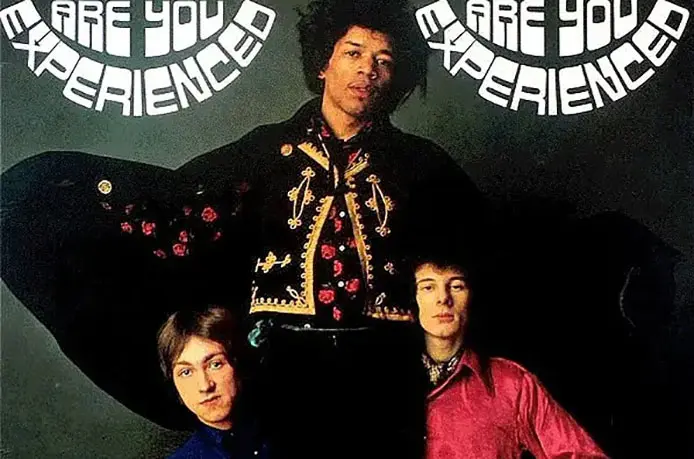As we reflect on the year that was, it’s clear that embracing experience in all its forms was the dominant trend of 2019. Possessions were replaced by pursuits, as people began moving away from the acquisition of objects and money to build capabilities and memories in a more nuanced and sophisticated manner. The Experience Economy will only continue to grow in 2020, with the sectors below recording the strongest growth as part of a collective desire to enrich the everyday through learning and doing rather than simply accumulating.
The Leadership Experience
Once upon a time, CEOs and politicians were taught to focus on accumulating wealth and boosting the bottom line. But in our November Thought piece, we revealed a very different leadership style has now emerged. The best leaders today aim to enrich the working lives of their employees, and so boost productivity and job satisfaction, by moving from a transactional leadership style to one centred on positive relational interactions. Soft skills and space for individual points of view have replaced hard data and top-down management styles, and employees are now team members, each with their own lived experience to contribute to the greater good. Another shared-experience trend we identified was that of co-CEOS, with firms such as Deutsche Bank, JP Morgan Chase and Oracle announcing dual CEOs in order to benefit from two minds rather than one. When two people work together there is greater perspective and the potential to create better decisions, as each CEO will have his or her areas of experience and insight, with the potential to deliver stronger outcomes.
The Innovation Experience
In our October Thought feature we considered experience in relation to Innovation, concluding that it is not a genetic predisposition (a la the savant par excellence), but rather something born of a lifetime of endeavour that can be developed and strengthened through practice (Malcolm Gladwell’s 10,000-hour rule springs to mind). Cognitive diversity is now also recognised as a key contributor to innovation in the workplace, leading employees to hire people with diverse backgrounds and ways of thinking. And the broader the individual life experience the better: many of history’s greatest innovators from Bill Gates to Leonardo da Vinci are genuine polymaths (a person of wide-ranging knowledge or learning). It’s been said that Steve Jobs was able to generate floods of ideas after he immersed himself in learning about new and unrelated areas—the art of calligraphy, meditation and eastern philosophy among them. The more diverse our experience and knowledge, the subject areas we have to draw on to create game-changing and globally successful ideas.
The Worker Experience
Work-life separation has become work-life integration and career path is now life path as employees demand a career experience that is integral to, not separate from, their everyday happiness and satisfaction. We found that one of the best ways to attract, develop and retain talented employees is to allow them to express their own thoughts and opinions rather than forcing them to toe the company line. According to the World Economic Forum’s Future of Jobs Report, valuing soft skills like originality, initiative and critical thinking is likely to become increasingly critical in giving companies a “human” edge as technology and automation continues to advance. Creating a purpose-centred company that allows workers to align their passions with an organisation’s mission is another way to retain talent increasingly motivated not by money, but by meaning. According to the 2018 Global Talent Trends study by Mercer, thriving employees are three times more likely to work for a company with a strong sense of purpose, and harnessing this desire creates what David Ulrich, professor of business at the University of Michigan, describes as “the abundant organisation.”
The Housing Experience
Has the great Australian dream turned into the great Australian nightmare? This was the topic of our August Thought: The Great Southern Land(grab), which examined the way traditional notions of home ownership have priced many people out of the market. The solution? New investment models that offer access for aspiring homeowners who would otherwise be priced out of the property market. Owning a home in Australia has long been synonymous with status and security in our country, spawning the “Great Australian Dream” of a quarter-acre block and freestanding home. But that dream has not proved available to all, thanks to soaring home prices which in 2014 prompted the International Monetary Fund (IMF) to report that Australia had the third highest house price-to-income ratio in the world. Cue the recent arrival of a raft of new affordable housing models that which provides fairer, more financially accessible housing such as Melbourne developer Assemble, which allows tenants to live in their homes with the option to buy them at the end of a five-year lease.
The Giving Experience
Today’s philanthropists are doing much more than simply giving away money. Instead of handing over lump sums of cash, they are using their skills, networks, insight and acumen to give with impact. Remaining true to the generous giving traditions of the past, the new generation of wealthy individuals and corporations are more strategic, global and organised than ever before. In some ways their approach to philanthropy mirrors the structure and expectations of the for-profit world they are so familiar with, leading to the term “philanthrocapitalism” to describe their outcome-driven approach to targeting social and environmental problems. Take the $100 million education fund launched by Netflix founder Reed Hastings, which has supported the development of a range of initiatives to improve education, such as the Knowledge is Power Program (KIPP), a national network of charter schools that is now sharing lessons learned with the public education sector. The conclusion from our September Thought: The New Age of Philanthropy was that giving today is an active pursuit rather than a passive contribution.
The Travel Experience
Could there be a more powerful and popular experience than that of travel? Since the dawn of time the idea of exploring new lands has captivated humans, and in our July Thought: Discovering the Modern Tourist we delved into what this means for the contemporary explorer today. From parsing the impact of over-tourism on specific sites (the closure of Thailand’s over-saturated Maya Bay to tourists in 2018 and the negative impact of 25 million visits each year to Venice, Italy) to examining how social media has changed how and why people travel (with a selfie stick, to capture likes and bragging rights) the how’s and whys of people’s desire to gain life experience abroad is rapidly changing. We suggested combating the negative environmental and social impact of travel by opting for trains rather than planes, lesser known destinations and visiting places during off-peak times of the year. With the tourism industry expected to break new records, continuing to grow at 3% – 4% according to the United Nations World Tourism Organisation, making conscious choices before and during trips abroad will become only more crucial in the years ahead.
Conclusion
As to what the future of experience might look like as we move into a new decade, expect a combination of super experience (experience on steroids by virtue of technology) and climate experience as global warming continues to hit home. With the realities of a warming planet increasingly touching our everyday lives (natural disasters, increased food prices, heat waves) we will embrace a radically changing experience that puts climate ahead of convenience (goodbye single-use plastics, hello walking rather than taking the car). As people continue to crave an antidote to the hyper-connectivity of our lives they will also embrace a more unplugged and low-fi experience exemplified by companies such as Unyoked, which offers off-the-grid accommodation in remote cabins. According to the Unyoked website: “There’s too much concrete and too many commitments in the world already, let’s all go wander in the woods.”







